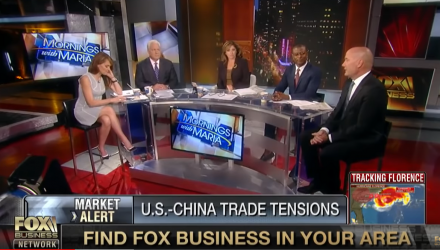“Anticipation of the markets maybe the market returning to normal times of volatility, normal market corrections–people not wanting to exit the market, but they want to be in areas that maybe aren’t as aggressive,” added Lydon.
As investors begin to hone in on value, China-focused ETFs and emerging markets could get a reprieve from their year-to-date doldrums like the iShares China Large-Cap ETF (NYSEArca: FXI)–down 4.25% year-to-date, iShares MSCI China ETF (NasdaqGM: MCHI)–down 8.29% YTD and KraneShares CSI China Internet ETF (NYSEArca: KWEB)–down 13.51% YTD.
Likewise, this has caused a ripple effect into emerging market ETFs, such as the Vanguard FTSE Emerging Markets ETF (NYSEArca: VWO)–down 7.67% YTD, iShares Core MSCI Emerging Markets ETF (NYSEArca: IEMG)–down 7.3% YTD and iShares MSCI Emerging Markets ETF (NYSEArca: EEM)–down 7.78% YTD.
While the two economic superpowers have locked horns on trade, the renewed talks could give a much-needed boost to China-focused ETFs and emerging market ETFs. With respect to value compared to price, many of these ETFs from abroad present a profitable opportunity that can be realized, especially if China and the U.S. ameliorate their trade differences.
“When you look at areas like China and the emerging markets, that’s been the weakest area around the world this year,” said Lydon. “However, the values are there–you look at P/E ratios around 11 versus 18 here in the U.S.”
“There’s a lot of smart money coming in where people are saying ‘You know what? I think there’s enough momentum where we’re actually going to see some progress,'” added Lydon. “And if we do, these undervalued stocks are going to take off.”
For more market news, visit ETFTrends.com.
